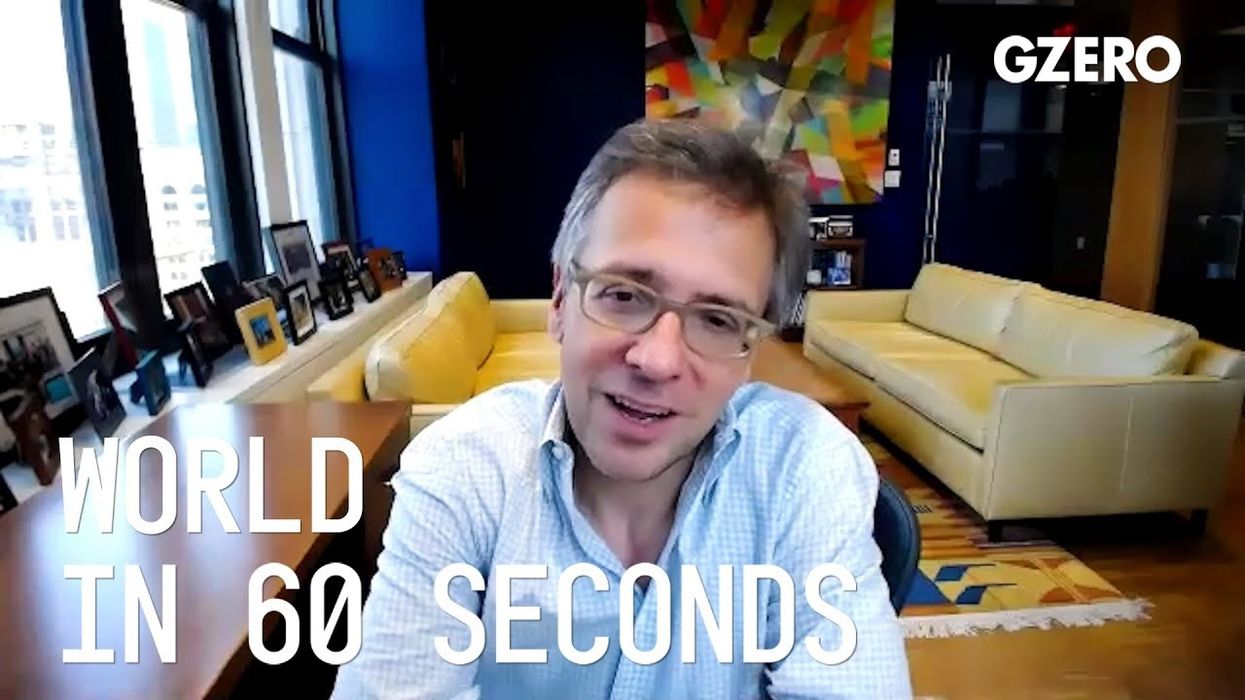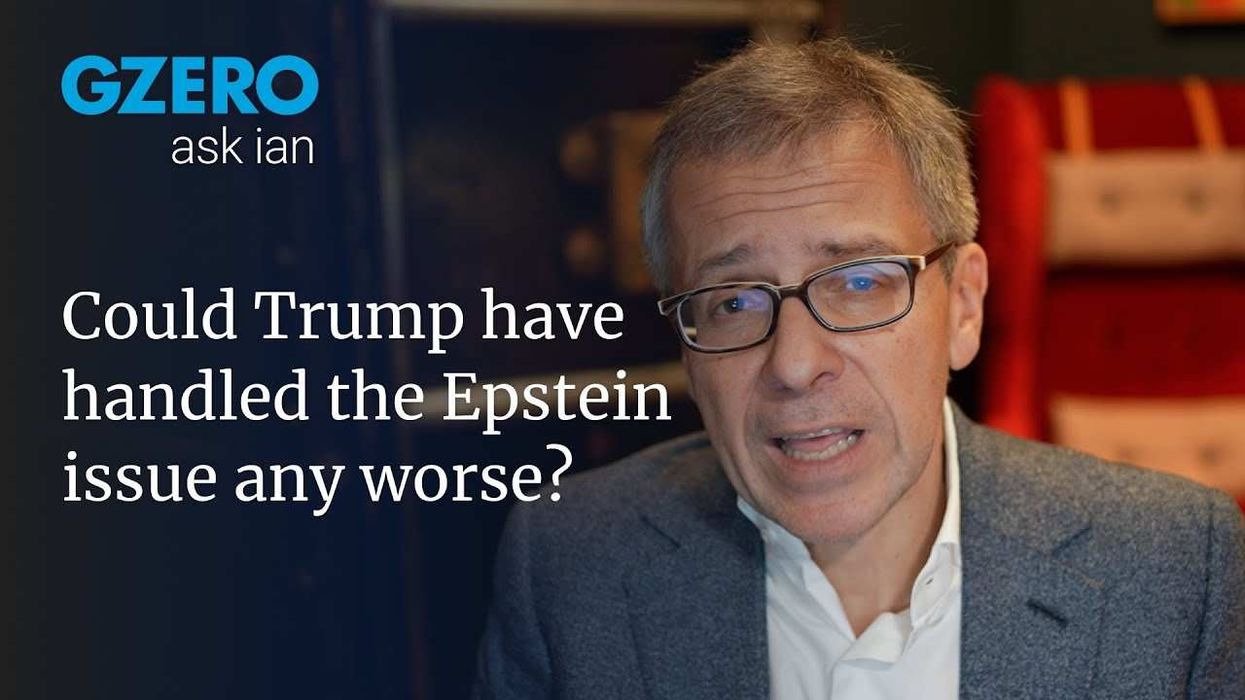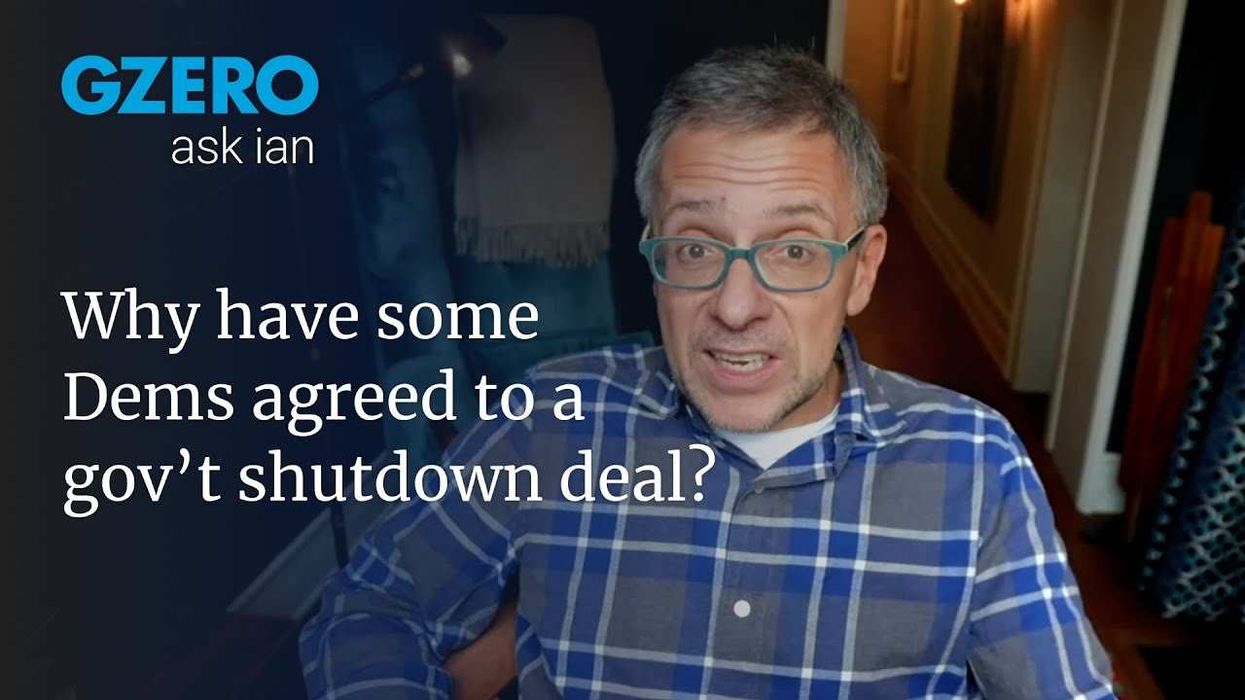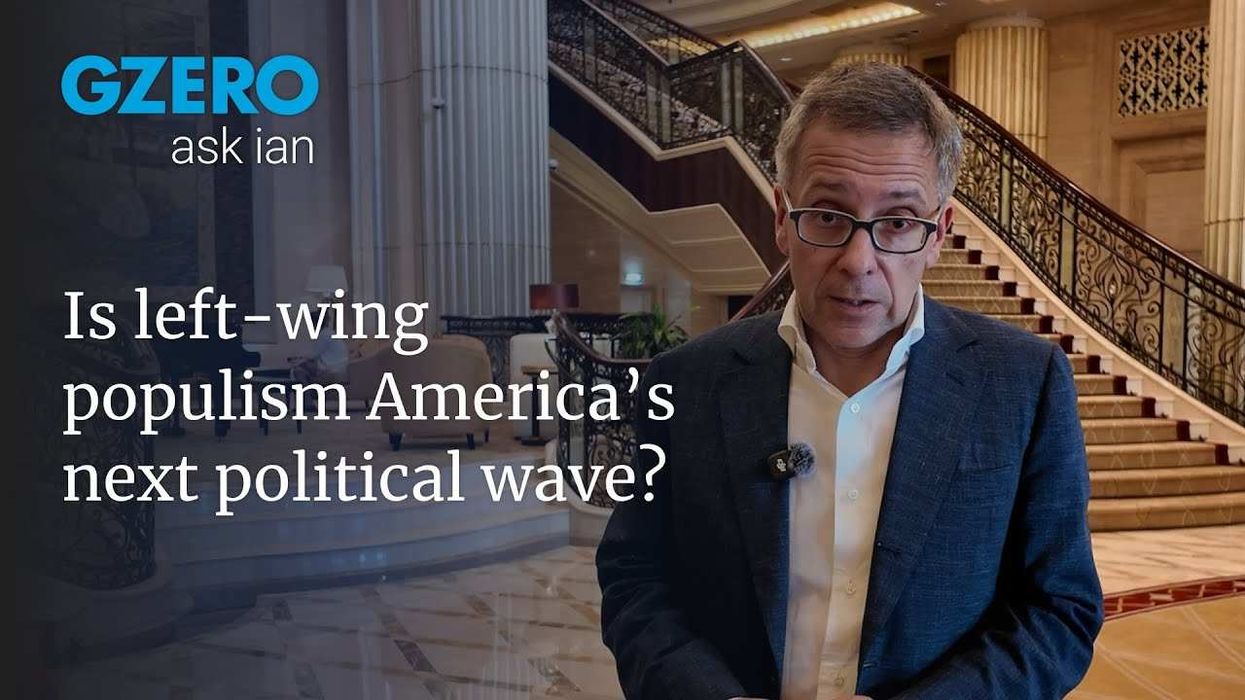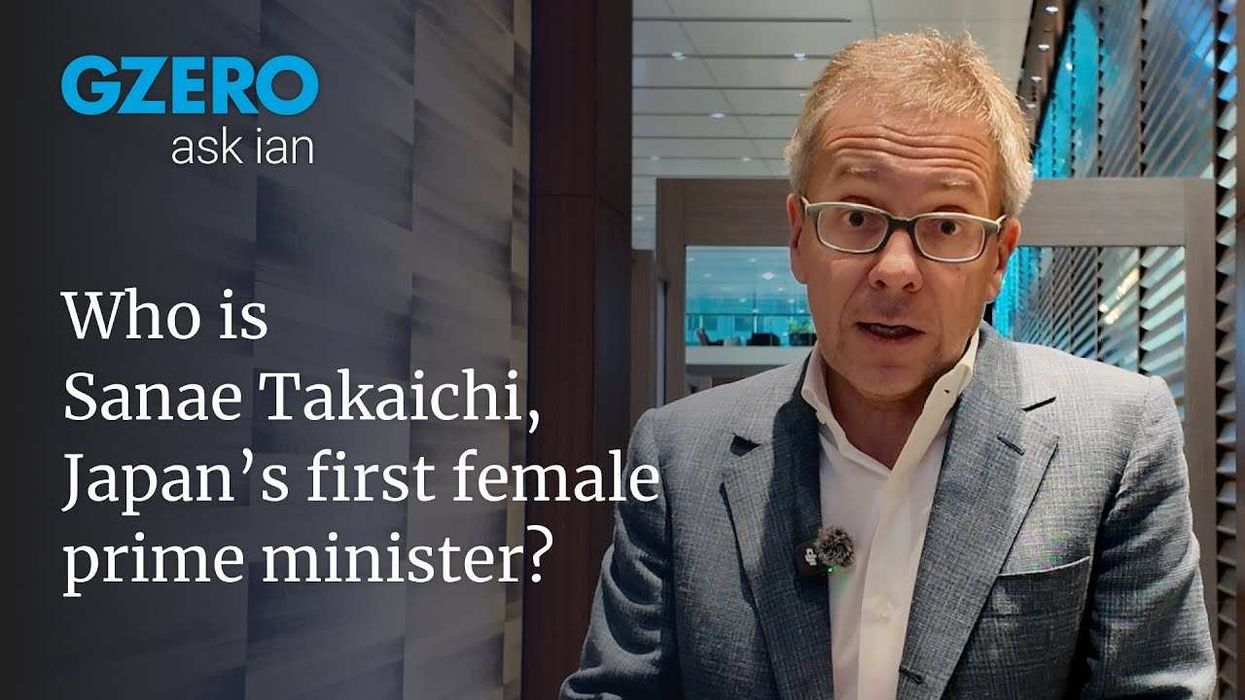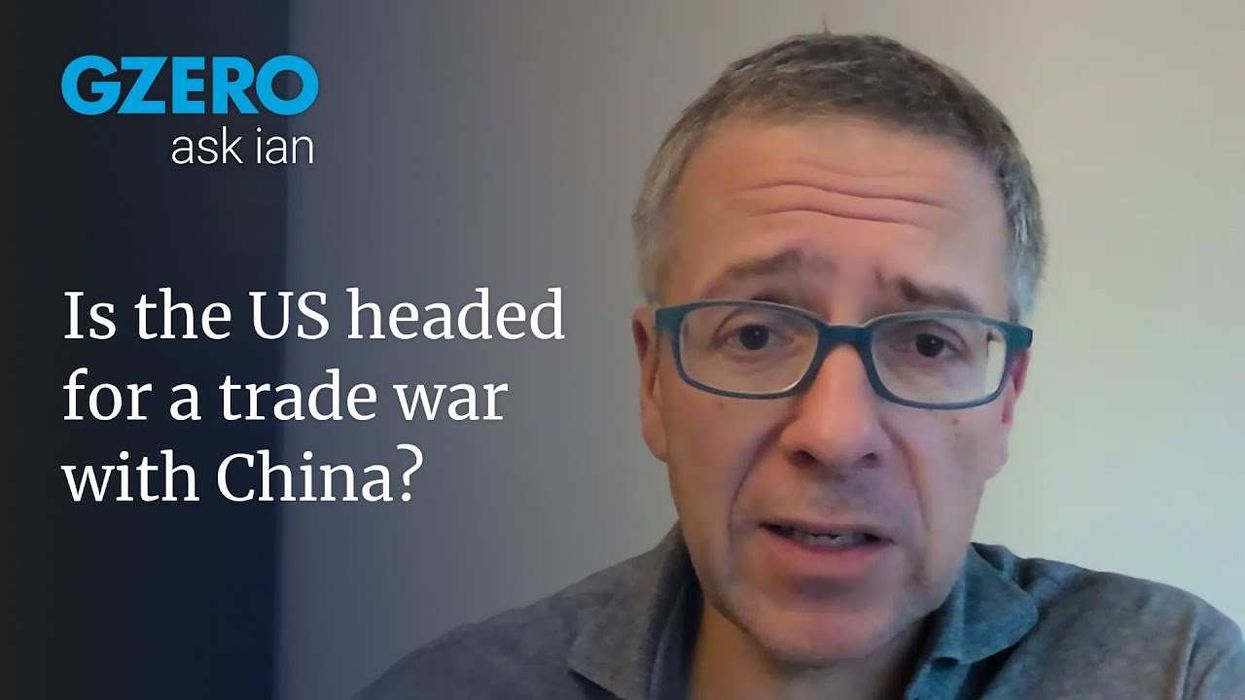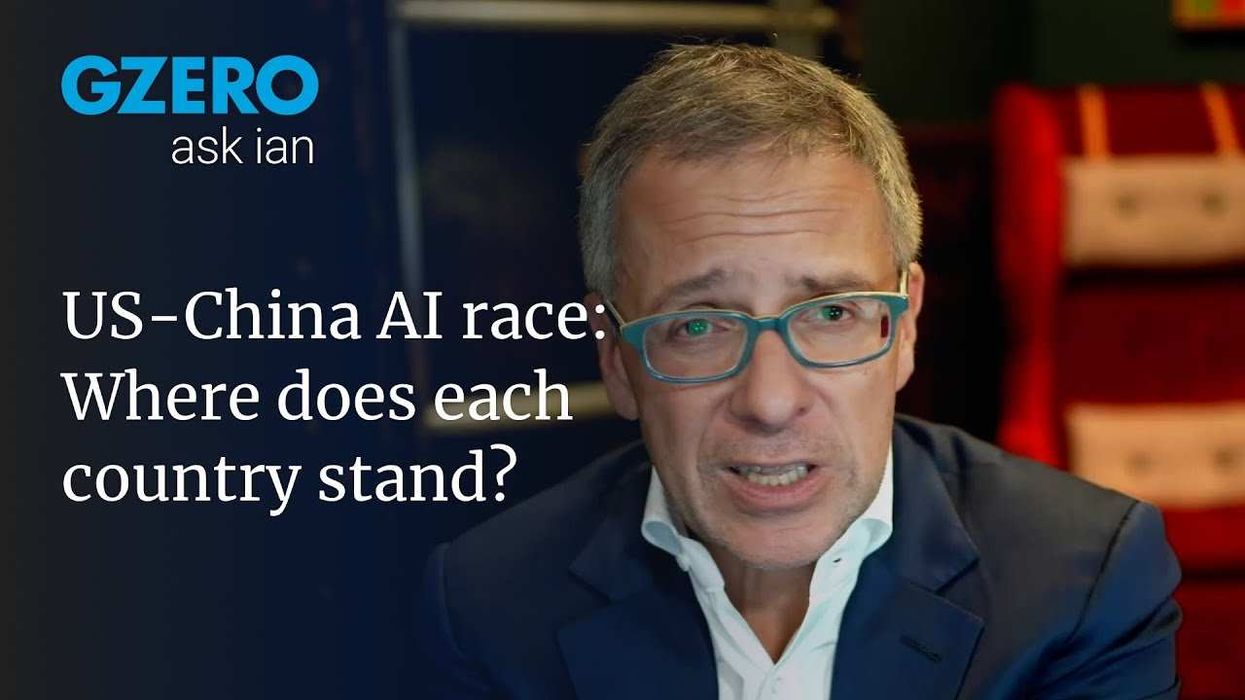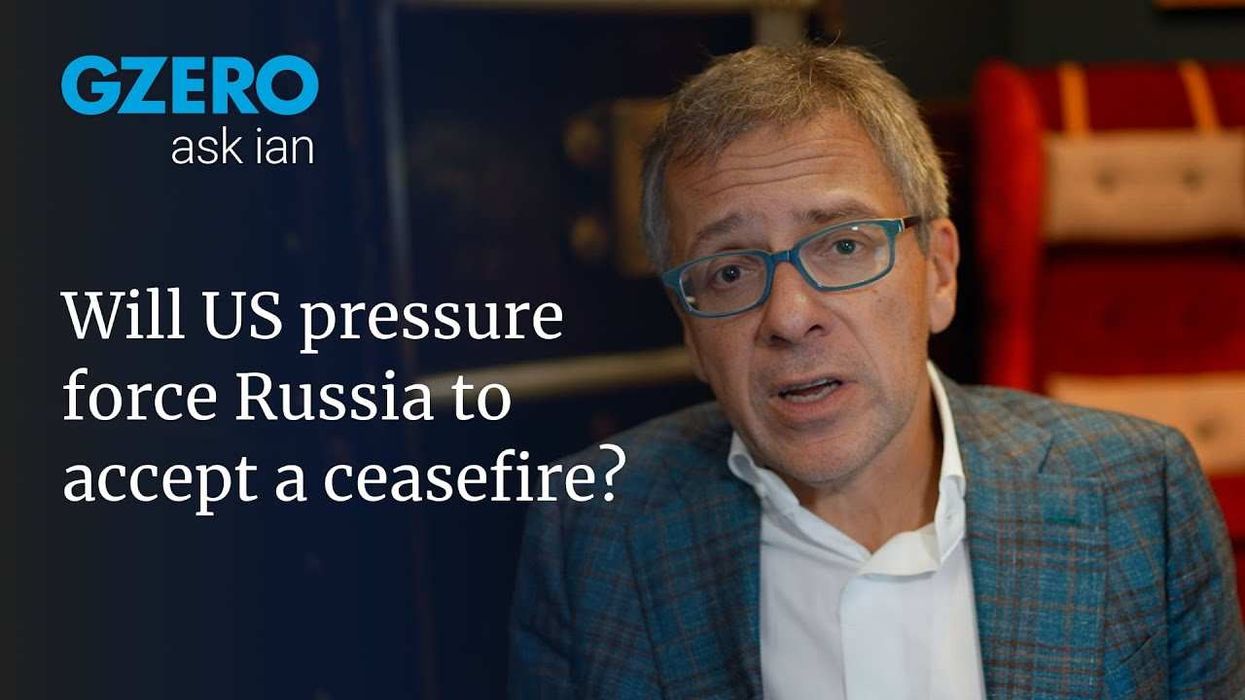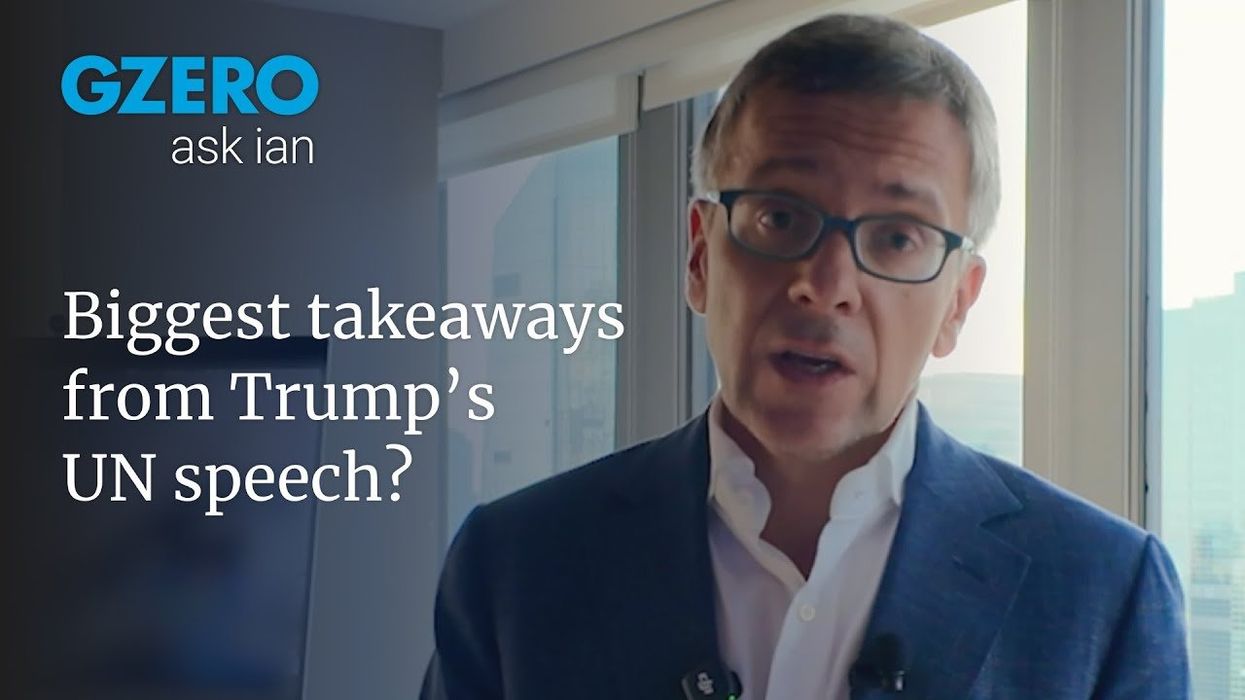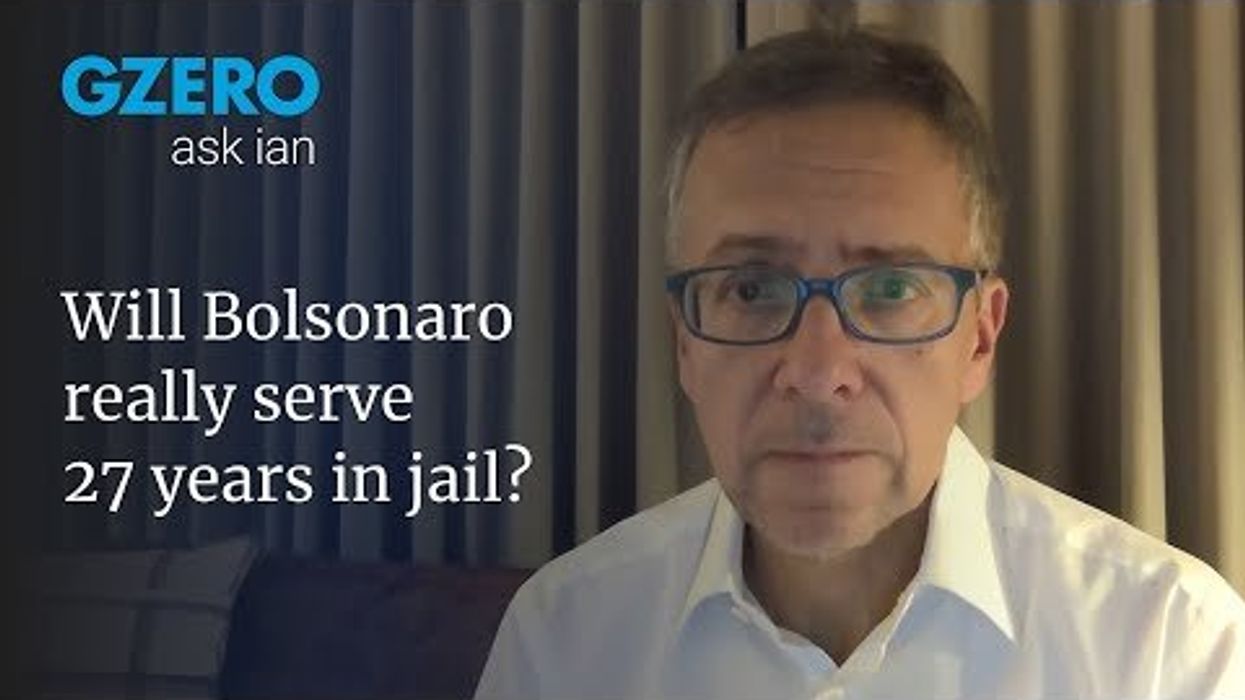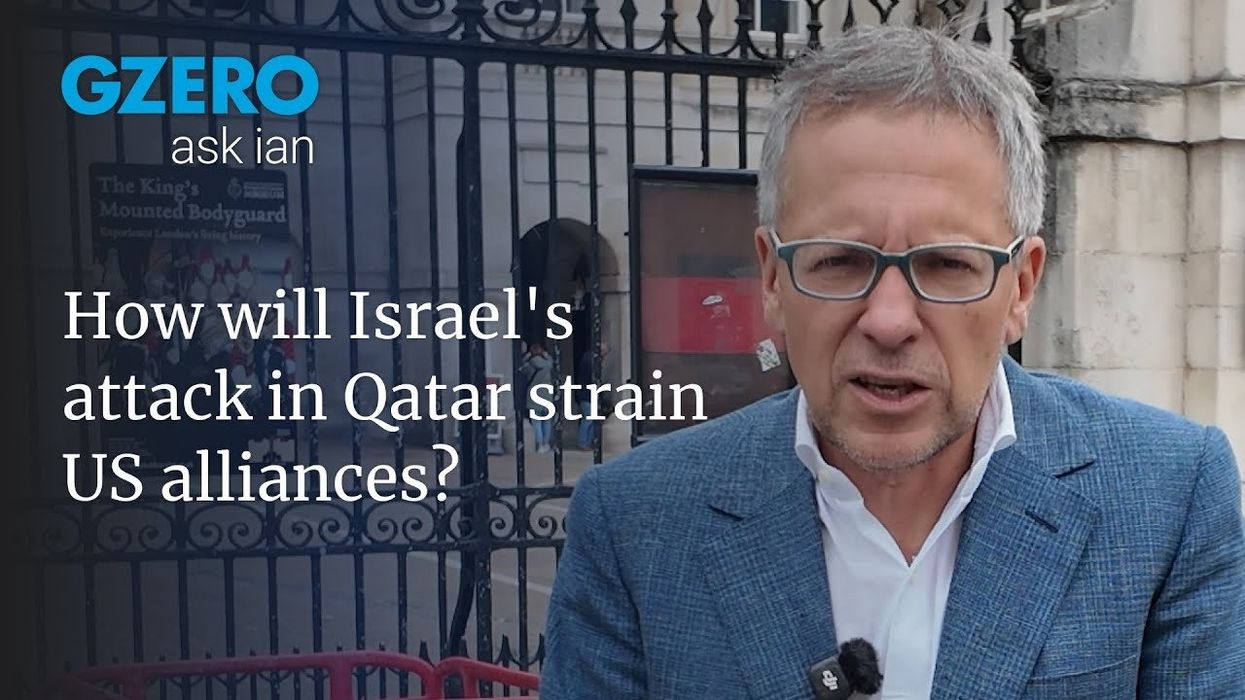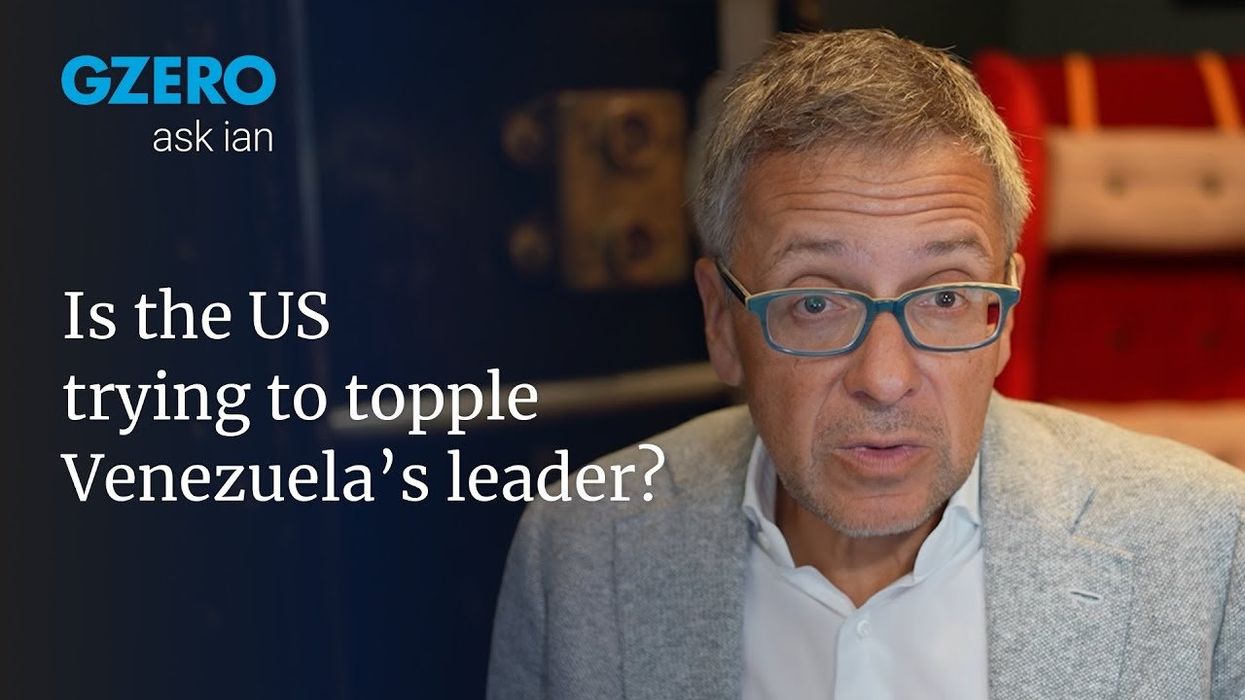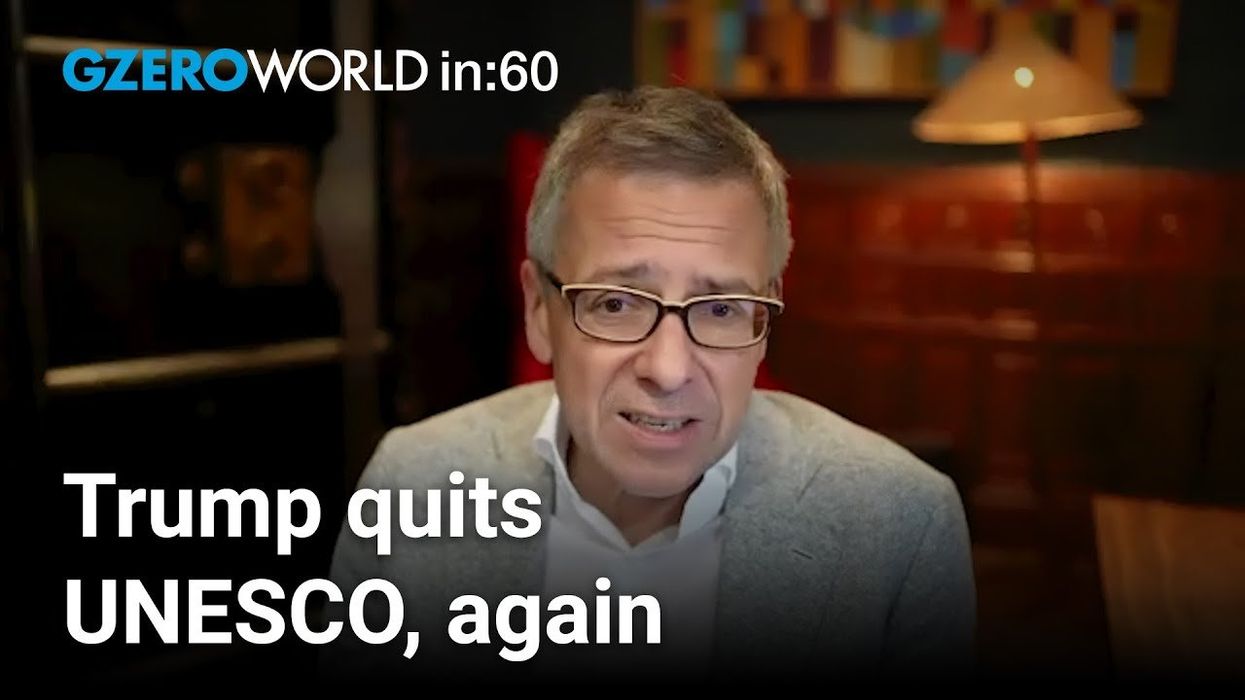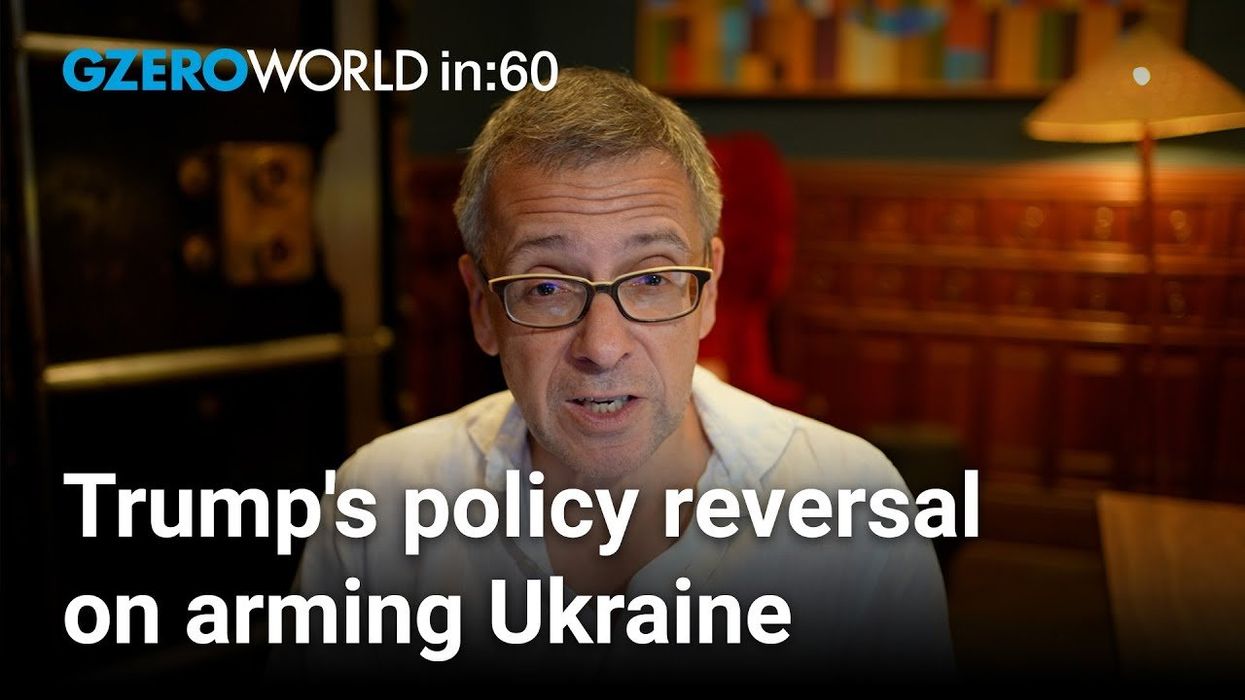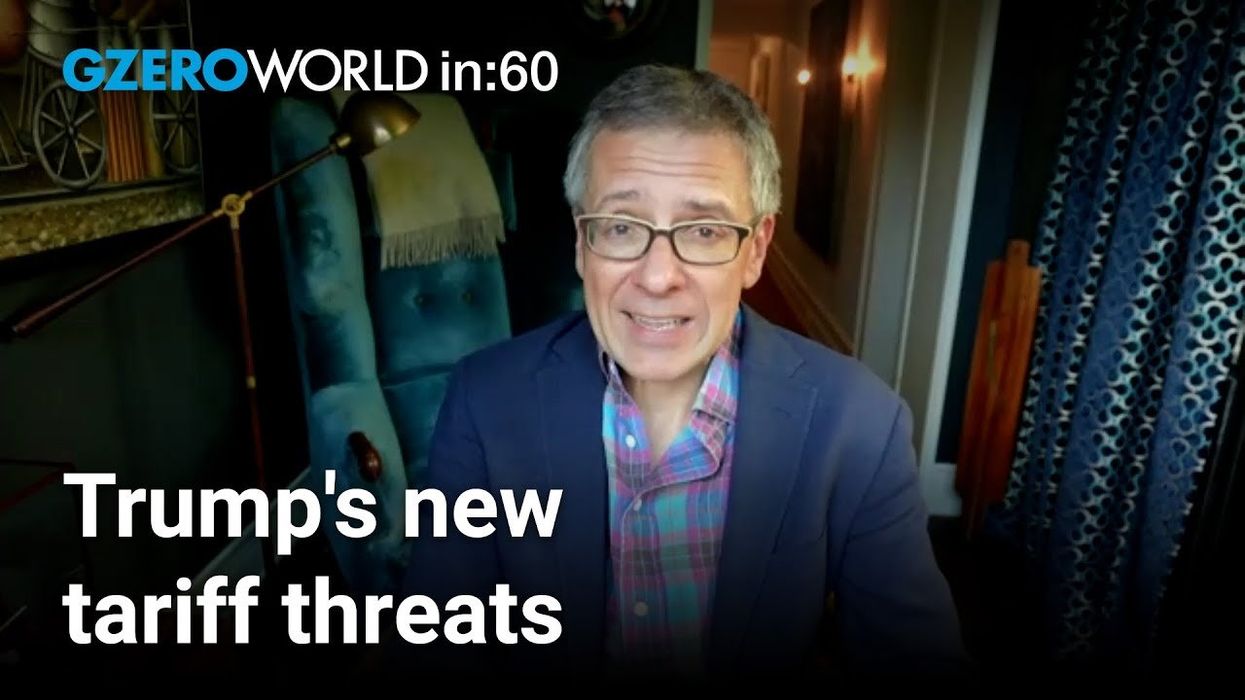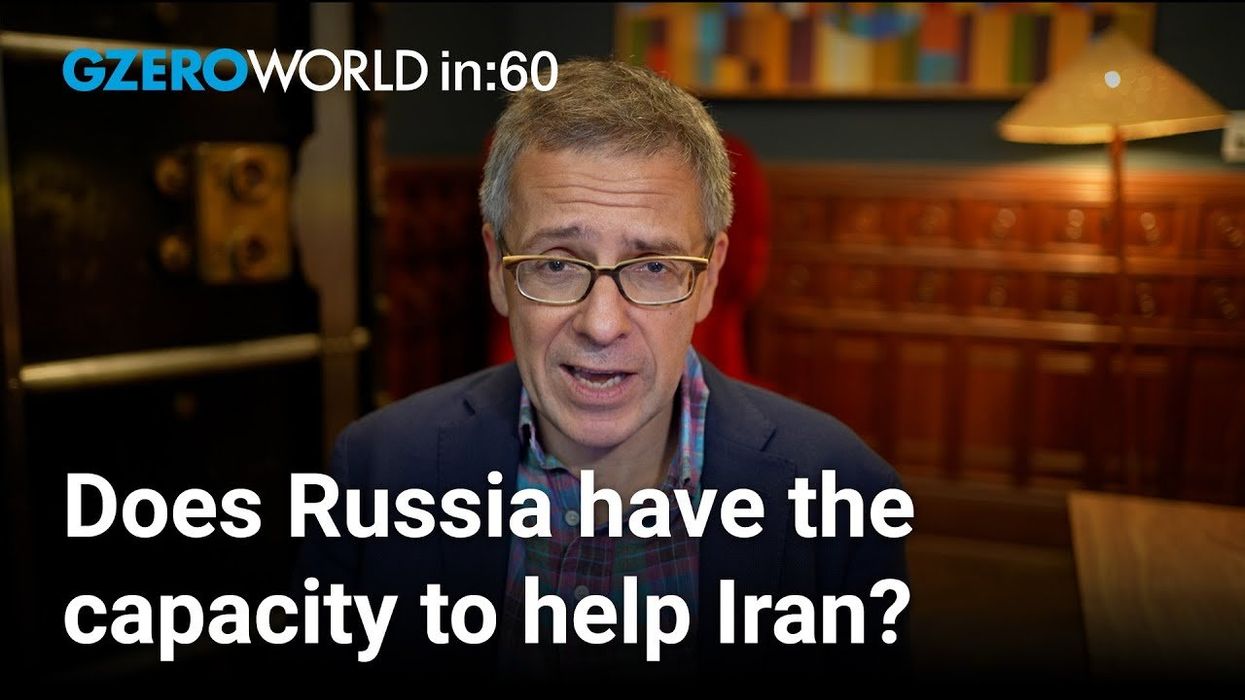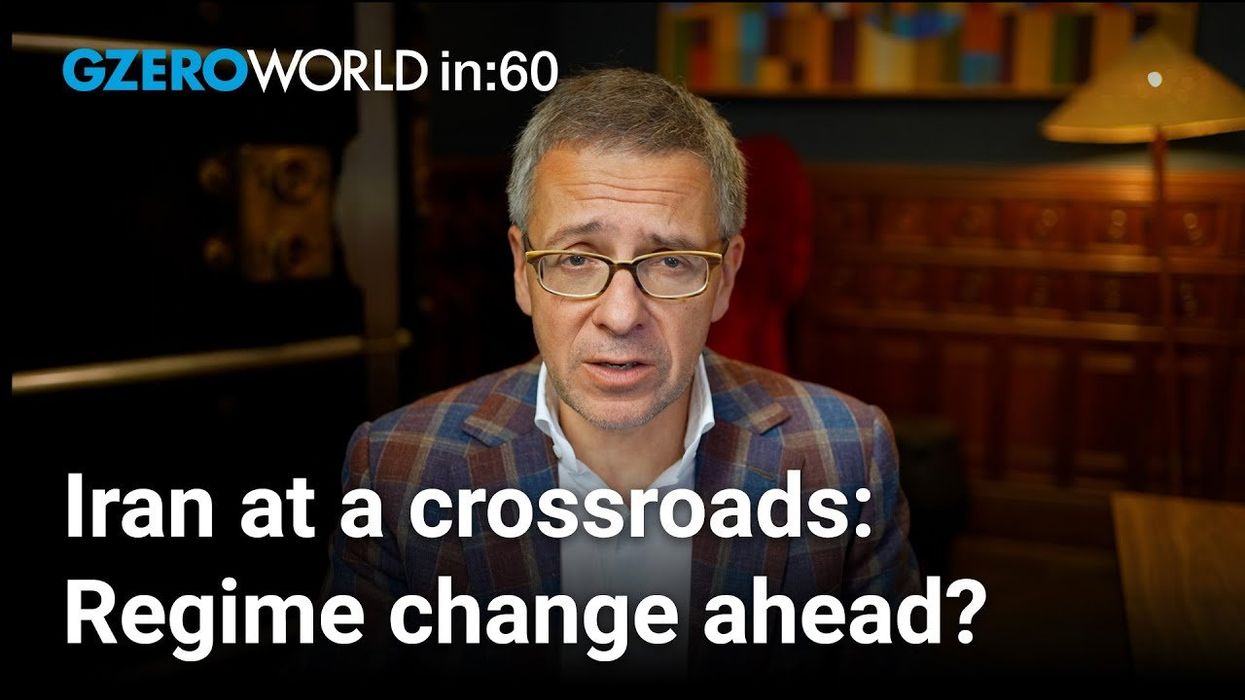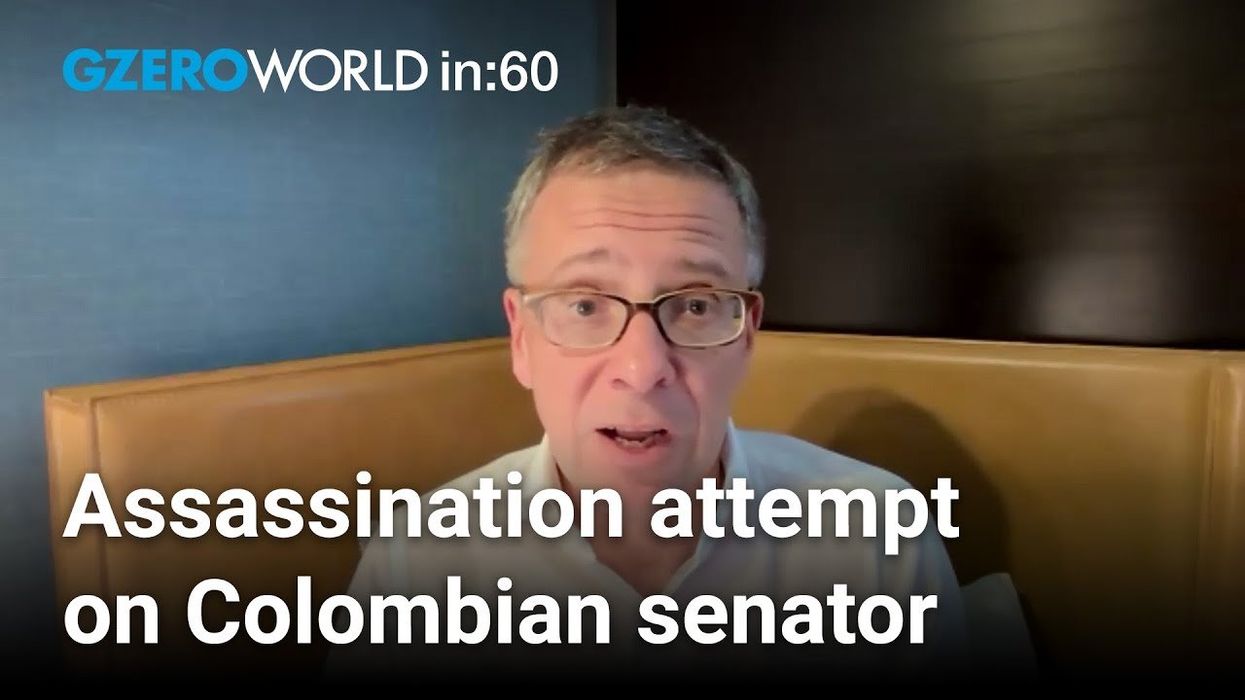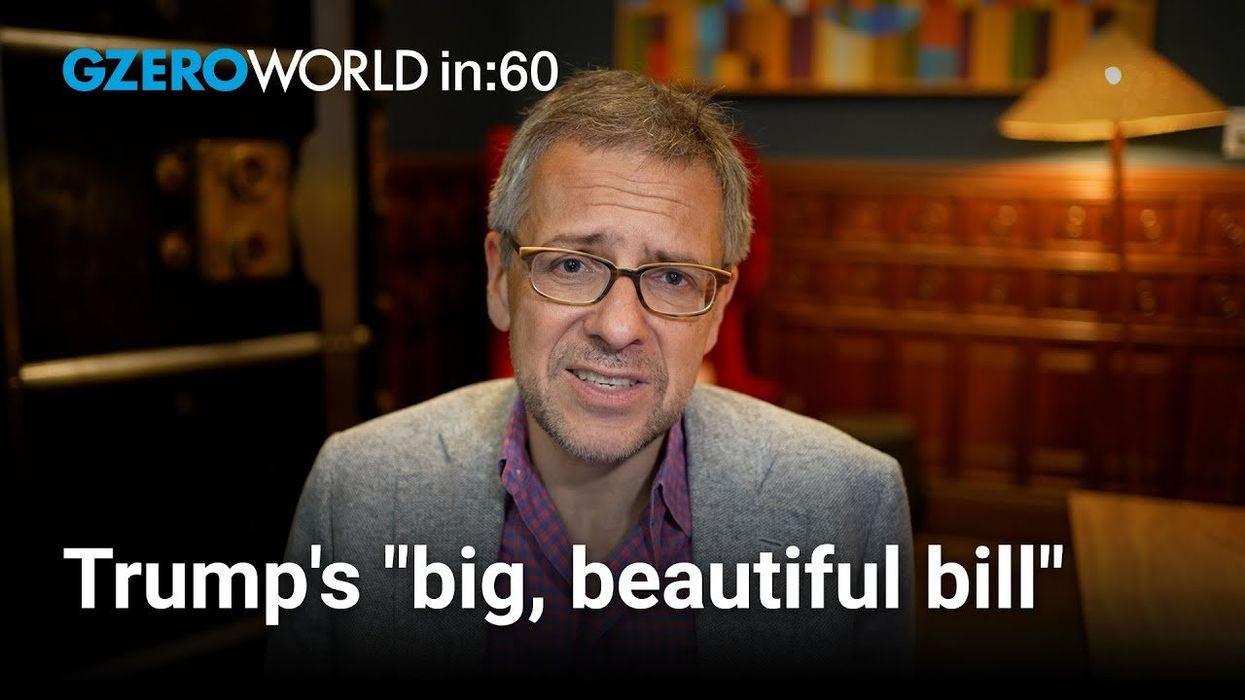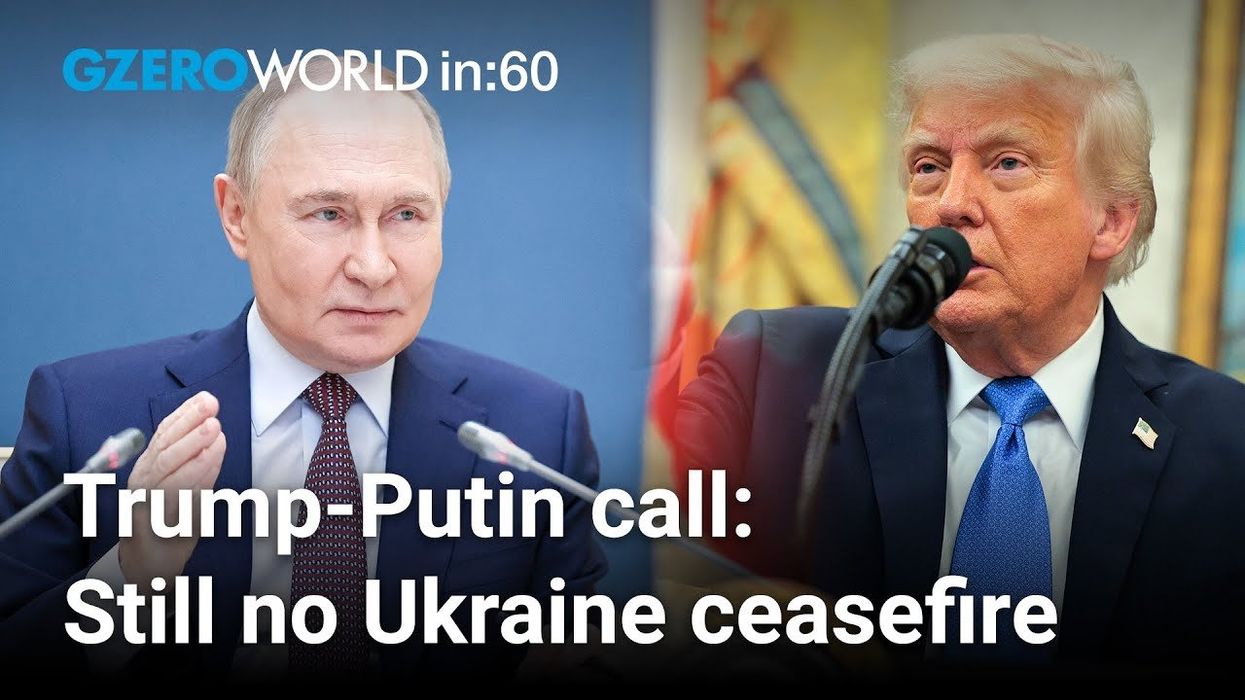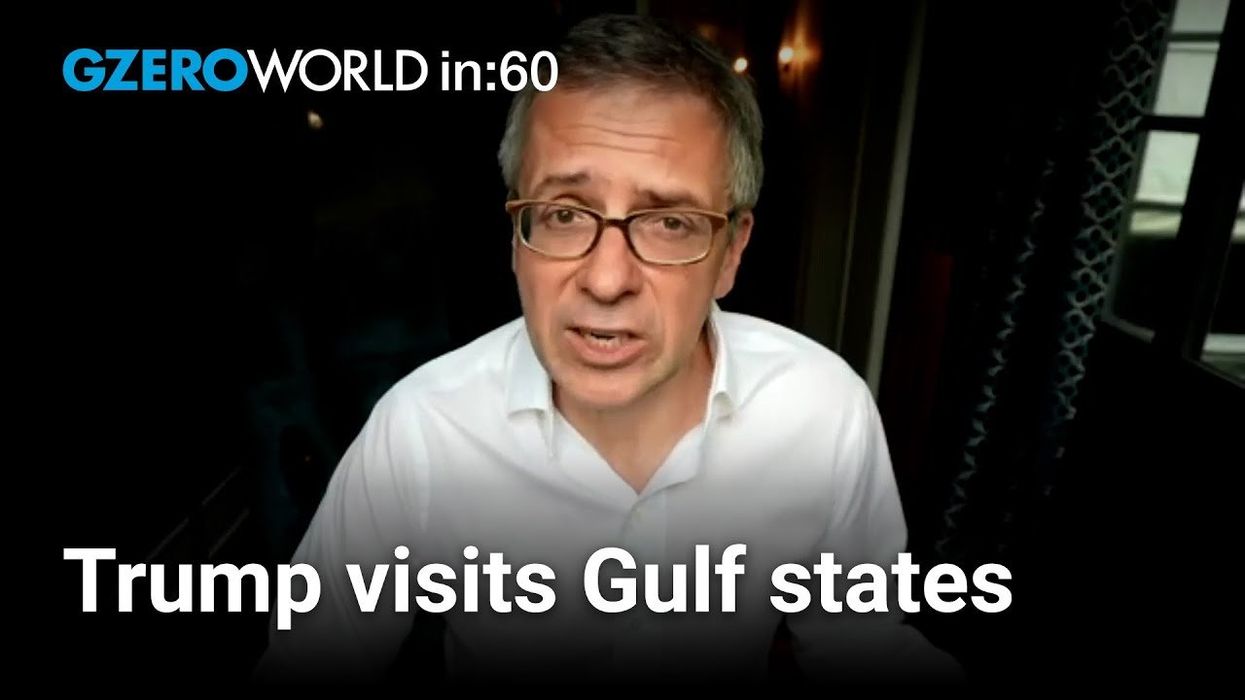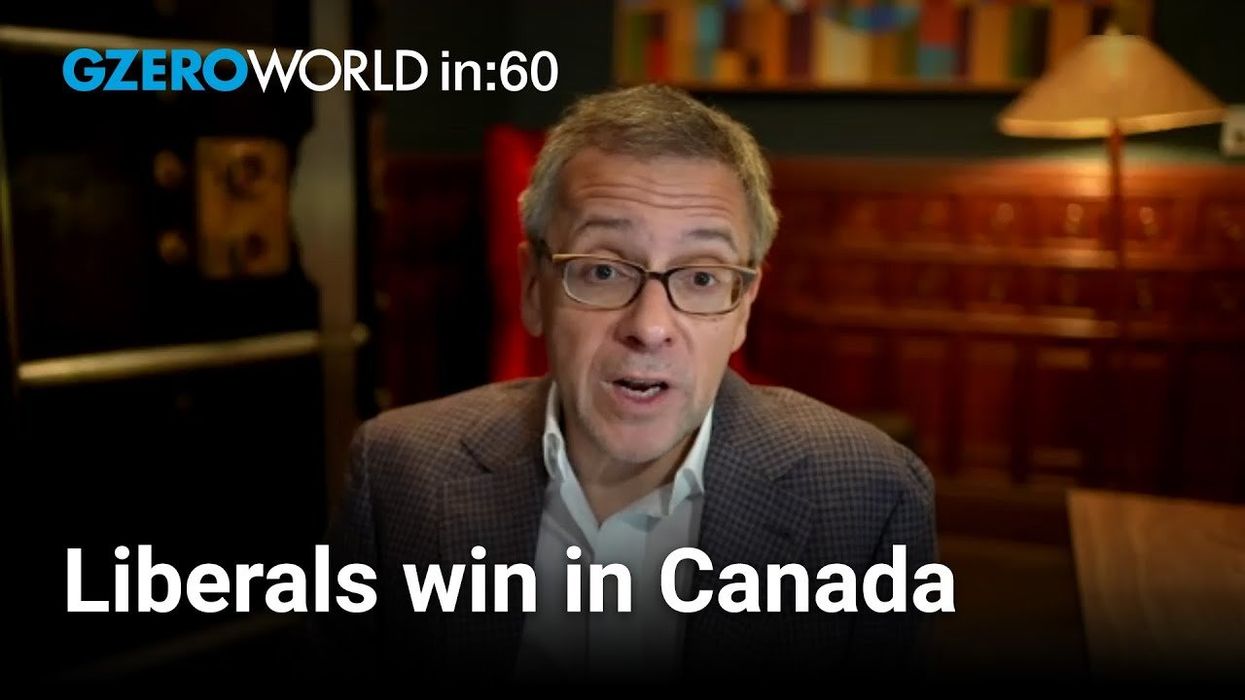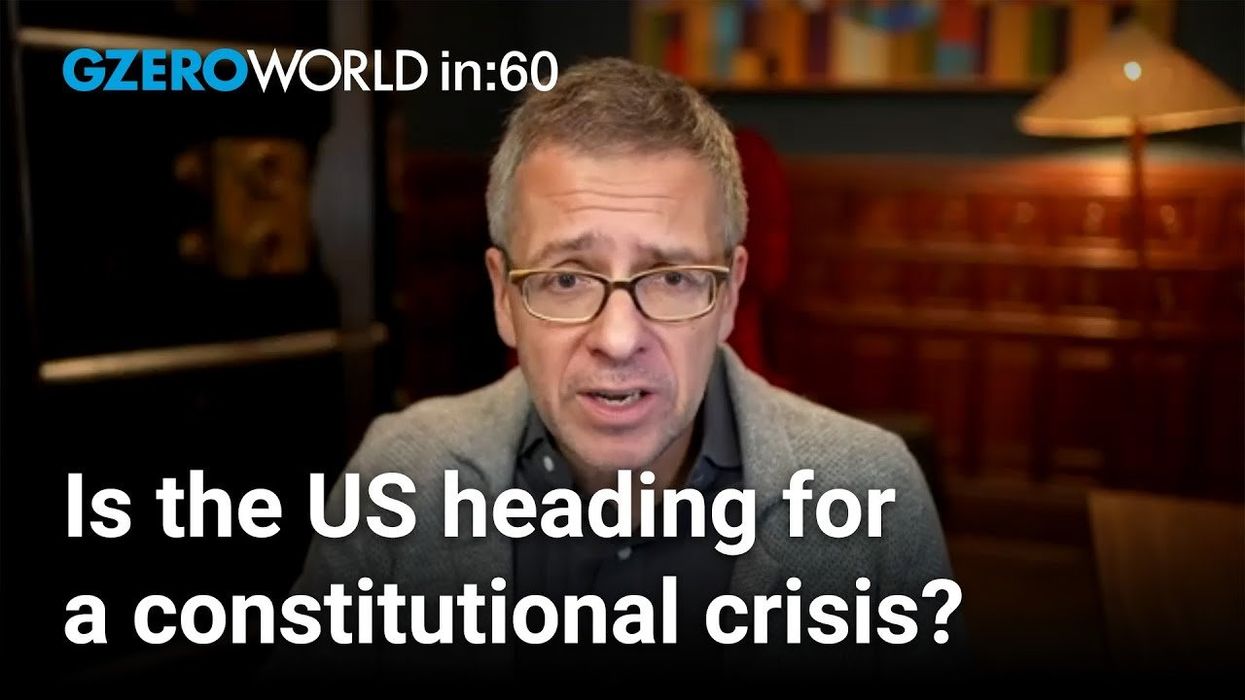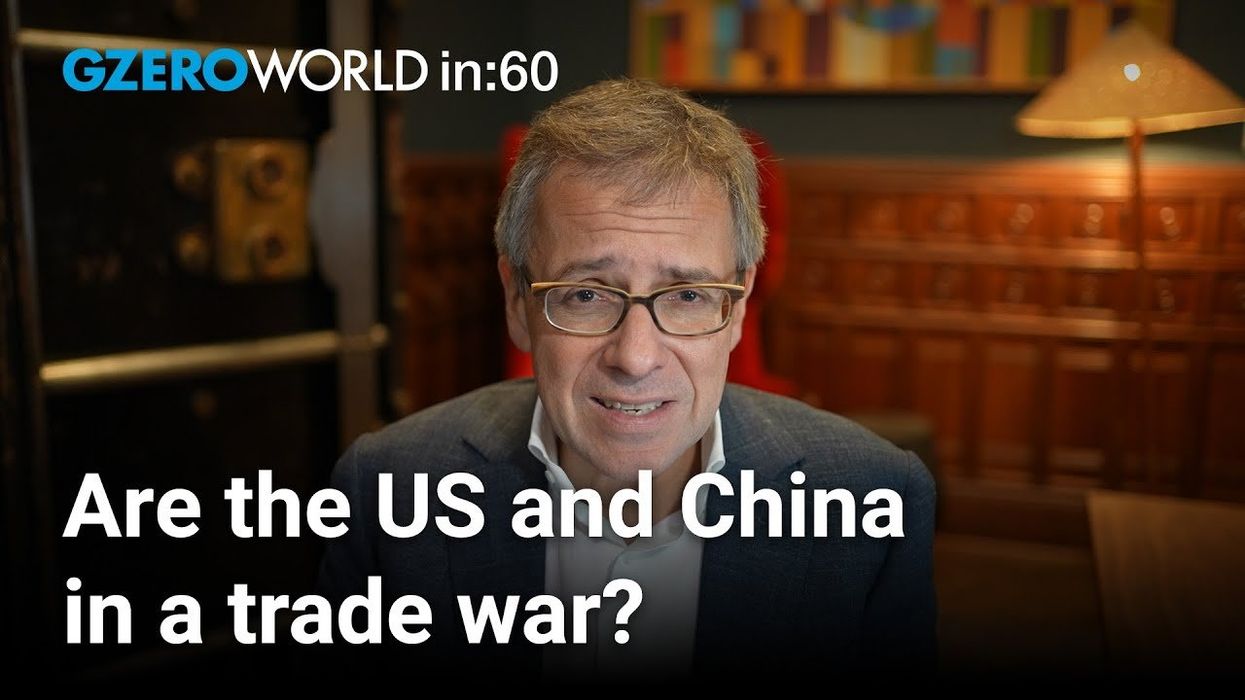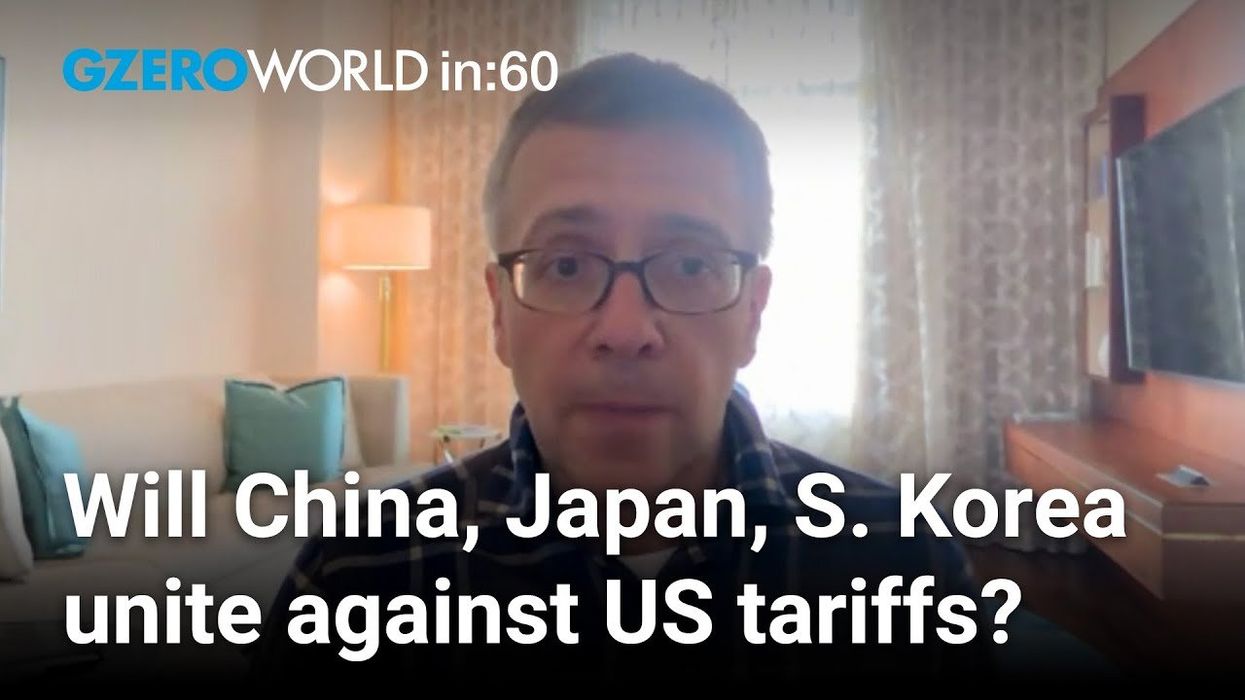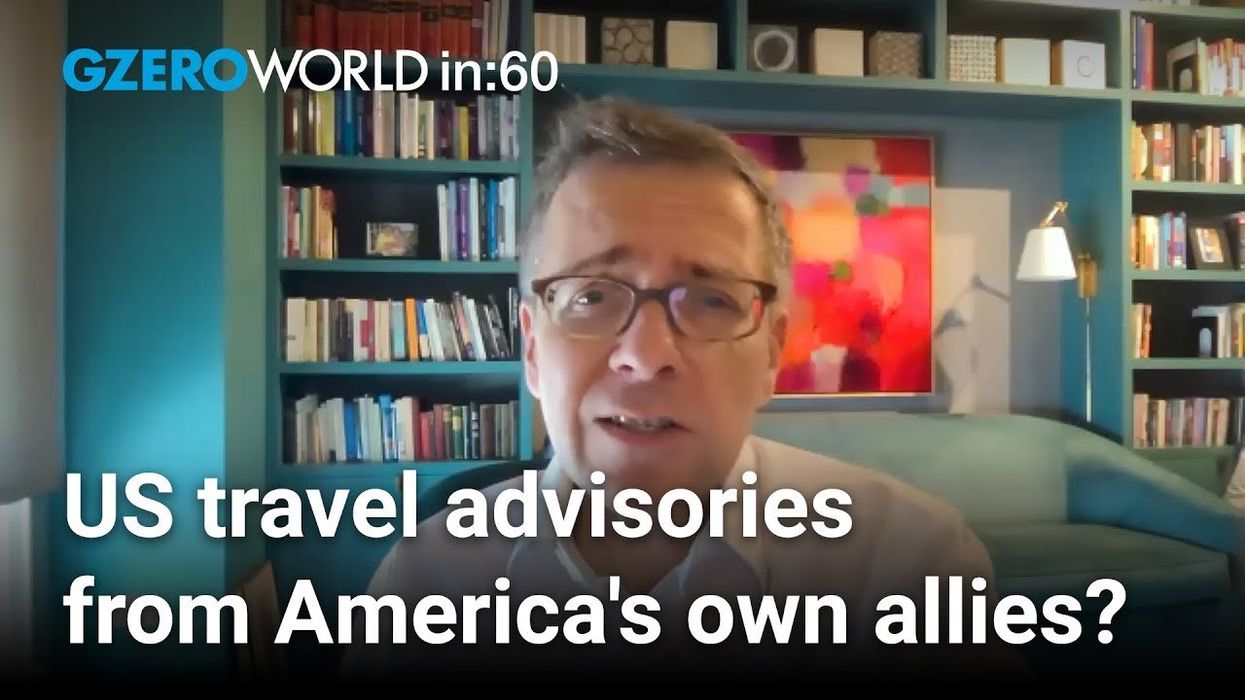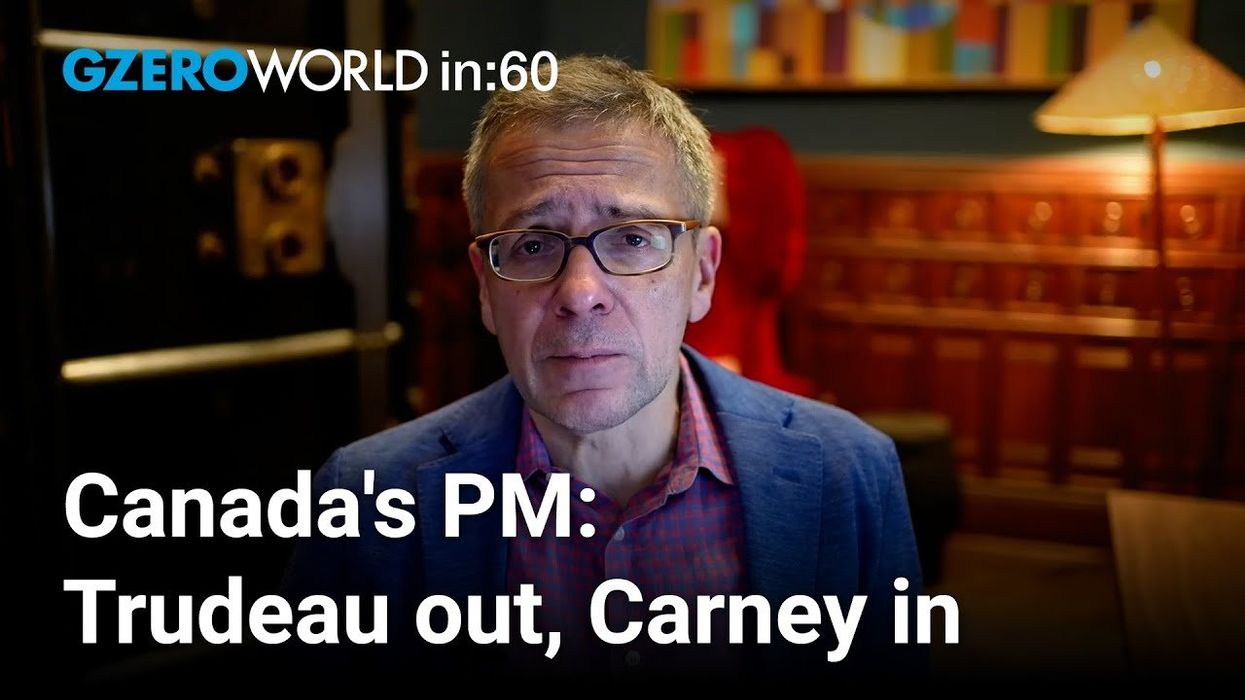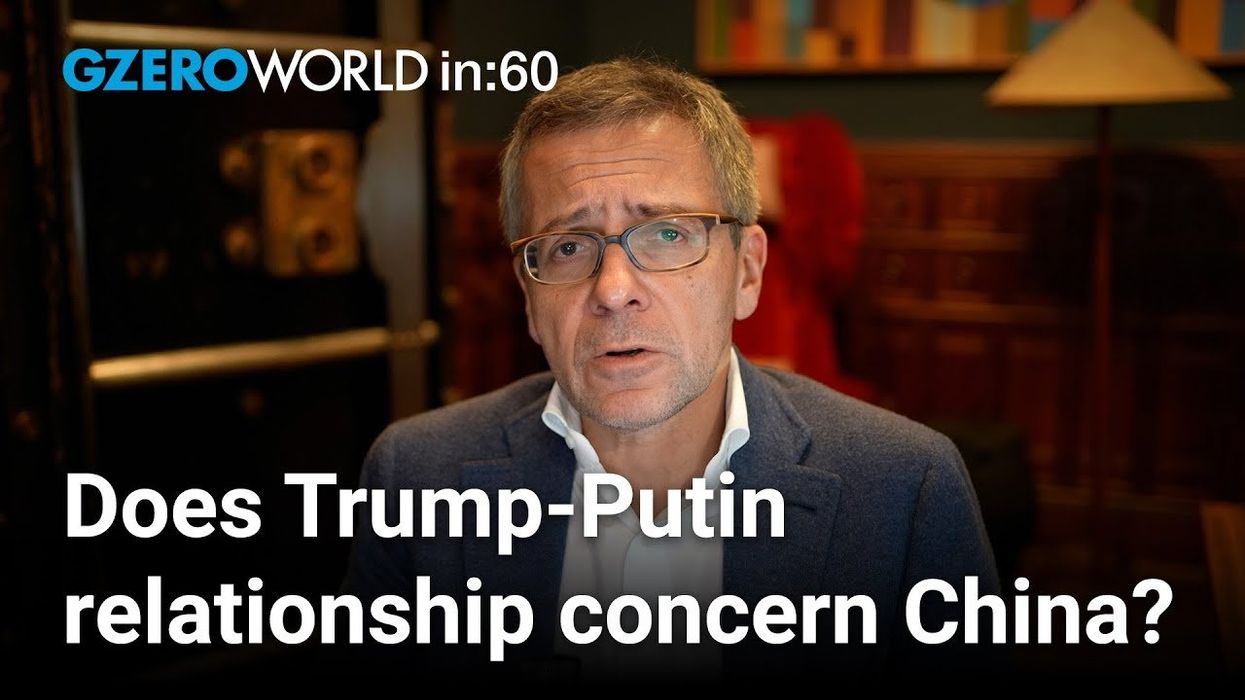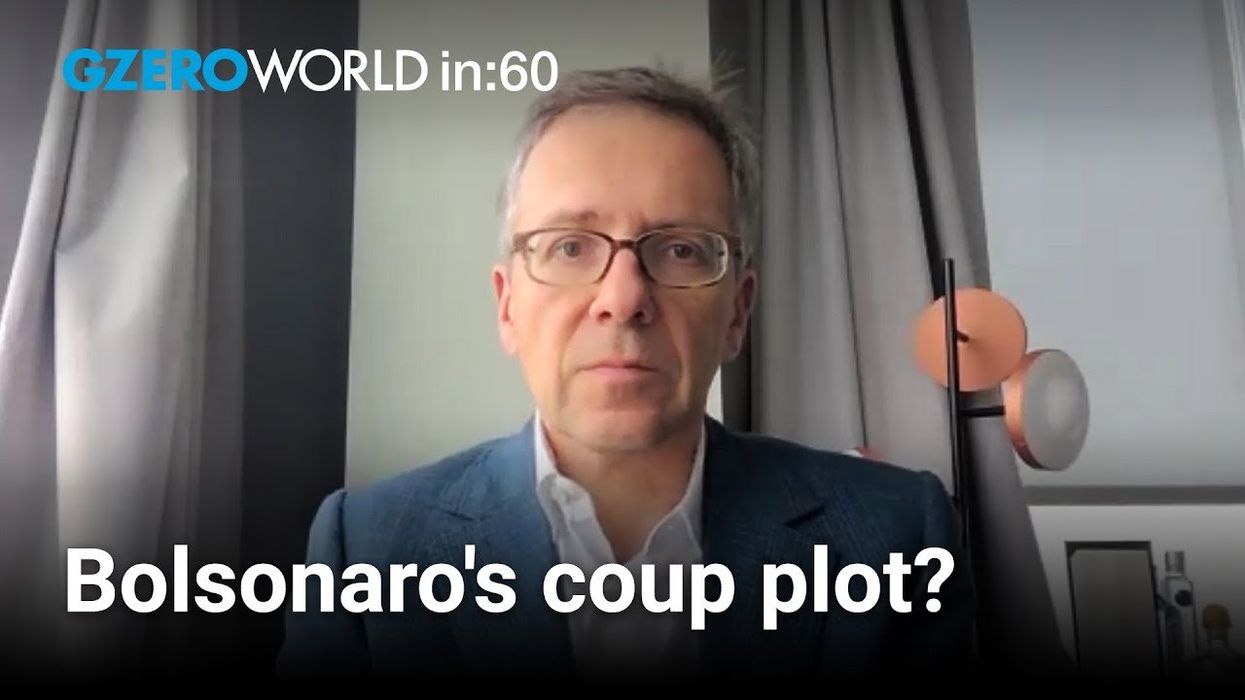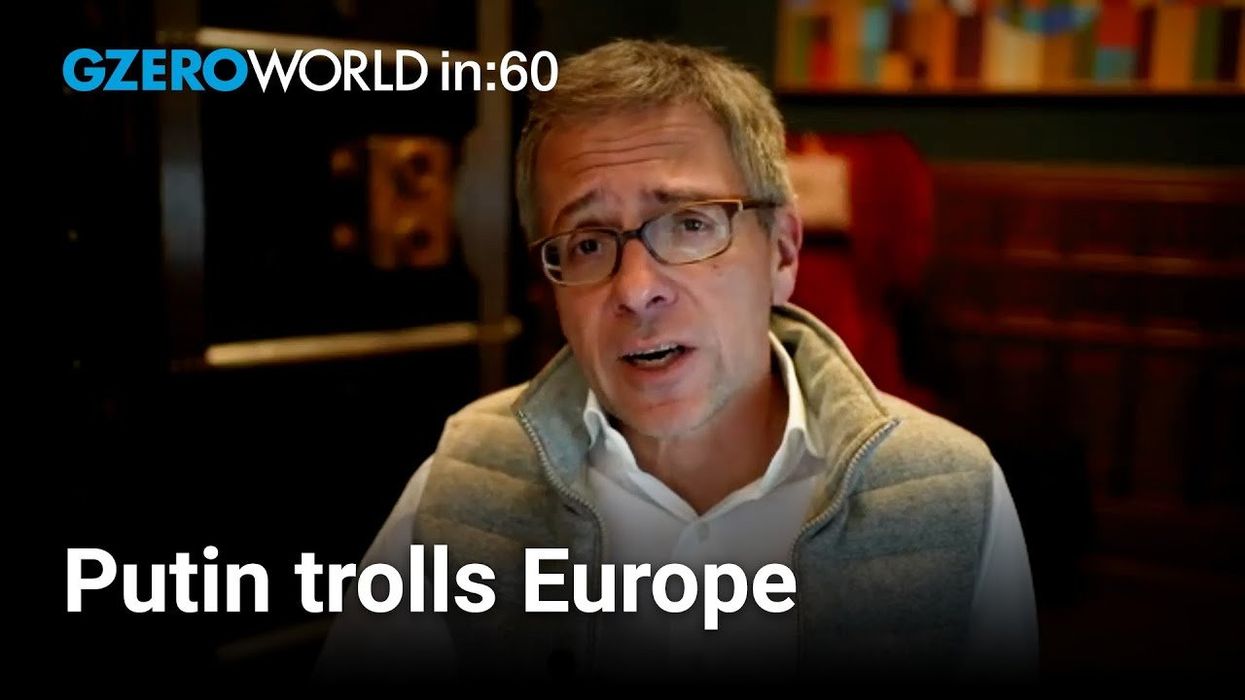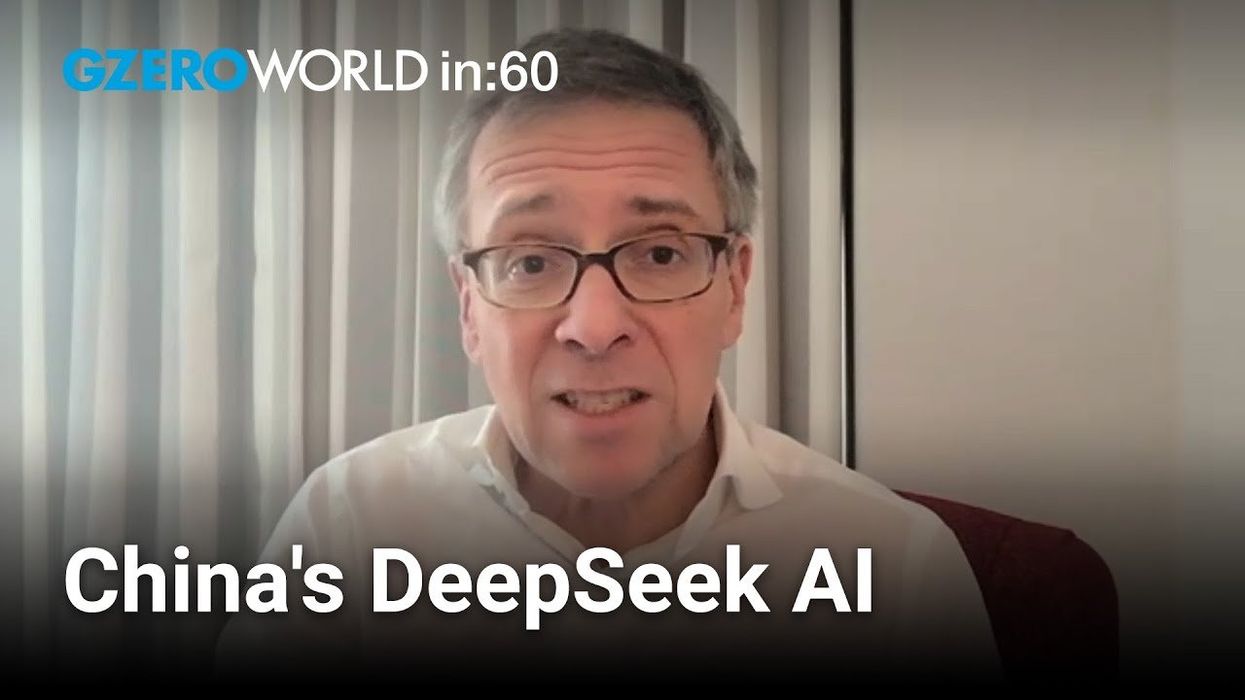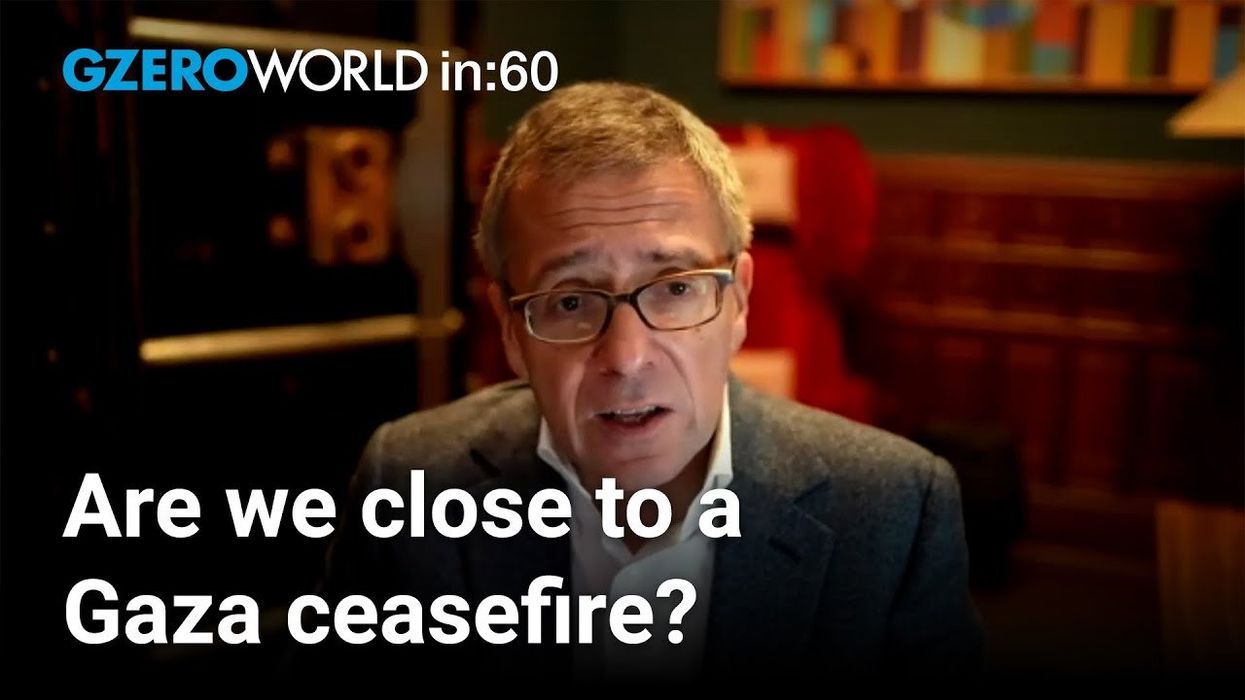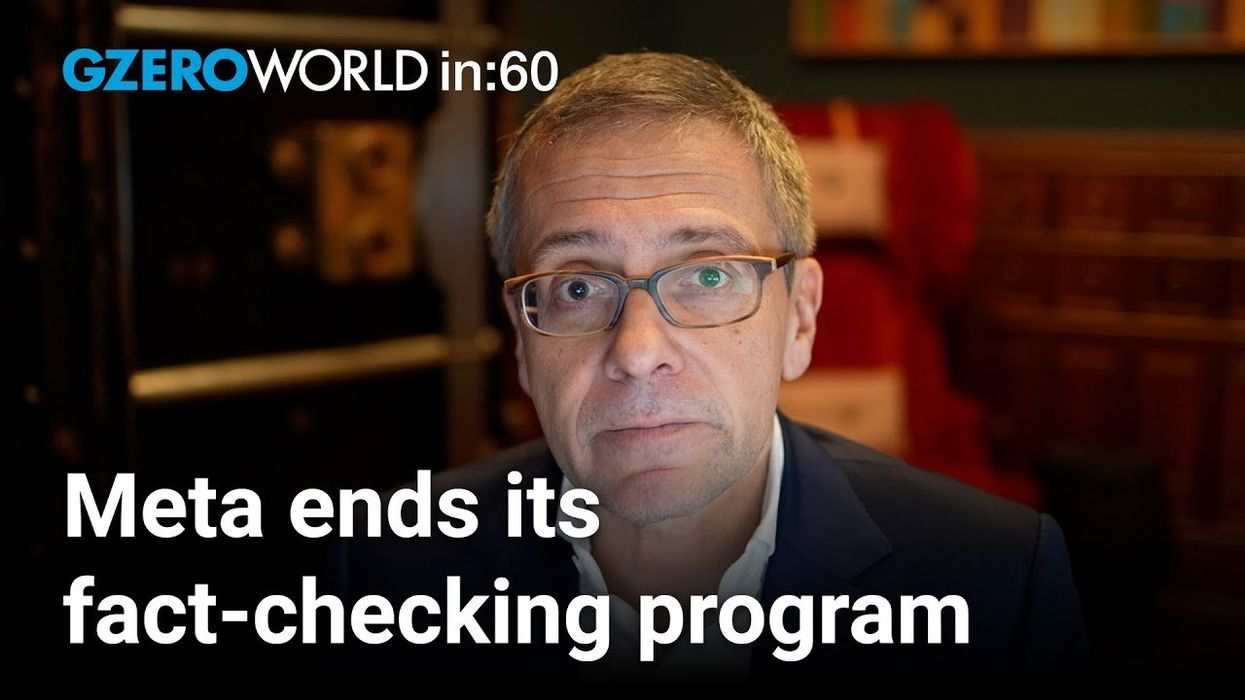VIDEOSGZERO World with Ian BremmerQuick TakePUPPET REGIMEIan ExplainsGZERO ReportsAsk IanGlobal Stage
Site Navigation
Search
Human content,
AI powered search.
Latest Stories
Sign up for GZERO Daily.
Get our latest updates and insights delivered to your inbox.
Global Stage: Live from Davos
WATCH
Ian Bremmer brings you his perspective on this week's World In (More Than) 60 Seconds:
How goes the U.S. China trade deal?
Well, if you were listening to senior adviser, trade adviser Peter Navarro last night, when he said the deal was over and the futures markets went down several hundred points, you'd say, oh, my god, the deal's gone. But literally within like half an hour, you had Kudlow, Larry Kudlow coming out and saying, no, I disagree. Trump then tweeting and saying the deal's fine. I think Navarro probably had a strip pulled off of him yesterday between him and Brad Parscale, the head of the Trump campaign. There are some unhappy folks that are in the inner circle right now.
But look, the deal is actually intact-ish, right? I mean, Lighthizer, the U.S. trade rep has been working closely with the Chinese, trying very hard to tell everyone that the Chinese are in compliance. Mike Pompeo, the Secretary of State, just went to Hawaii to meet with Chinese leadership. They came out of that saying the deal is still very much in place. And then Trump's own tweet yesterday making very clear that he does not want to break this deal, even though he's blaming China for absolutely everything around coronavirus and saying that's 100 times more important than the trade deal. The reality is that he watches the markets and he doesn't want a market hit from new tariffs and a consumer hit from new tariffs. Five months before the election. So for now at least, I think this deal is fairly solid.
The problem is that it doesn't get you very far. I mean, it stops you from having escalatory tariffs from both sides, but it doesn't stop you from having a big fight on Hong Kong or Taiwan or the South China Sea or Huawei or the Uyghurs coronavirus or any of 20 other things that are going on in the wrong direction between the Americans and the Chinese right now. So it's in place. We'll see if it lasts until November. And U.S. - China is nonetheless not getting any better.
Second question: Why is Pakistan doing such a bad job controlling the pandemic?
Well, they don't have much money. First of all, to keep the country locked down. You know, in the United States and wealthy countries, you get a lot of people saying we're gonna get back to work and a place like Pakistan, the leadership is saying we need to learn to live with the virus. We're just not going to be able to lock down. They have nowhere near the health care that could take care of all the people that will go in ICUs. They know that they have nowhere near the testing capacity to even have a sense of how far how broadly coronavirus is spreading. They have nowhere near the ability socially distance people away from their friends, their families, especially given much more dense living conditions in urban centers in Pakistan. One of the big problems they have right now is that the military is getting angry at the bad job that the prime minister, Imran Khan, is doing. And so they are increasingly having direct influence over a lot of local decisionmaking. I wouldn't say it's a soft coup, but it is a transition away from executive authority, away from parliamentary authority, towards military authority in Pakistan, something that's always a concern, especially because Pakistan-India relations are problematic. Pakistan gets almost all the economic support and investment from China right now. The Indians, of course, very much on the other side of that fighting the Chinese directly over a border dispute that just killed 20 Indian soldiers in the last week. This geopolitically is going to get more challenging over time. And Pakistan is a very populous country. Again, all of this is going to make more news.
What country's response to coronavirus has been the least political?
Well, for me, when I say least political, I would say expertise driven. In other words, you want the epidemiologists and the medical doctors out front informing policy and how to respond to the pandemic. You want your economic advisers, your Central Bank governor, responding to the economic challenges and dislocations. What countries have done that? There were a bunch! Among wealthy countries the biggest ones would be Germany and South Korea.
A lot of small wealthy countries, because it's easier when you have a small government and you kind of know that you can rally a comparatively homogeneous population together behind a crisis in one direction. So countries like the UAE, like Singapore, like Taiwan, Hong Kong, the territory's done quite well. In response, New Zealand, of course, everyone talks about, but also some poor countries, Vietnam, Argentina, Greece, that have leadership that really saw this as a moment to put politics aside, get all of the political parties in the case of Greece and Argentina or all of the elites, political elites and military in the case of Vietnam and the party together to ensure that there was an early, serious response and no cheerleading. This is not a time for good news, is the time for hard facts. And the better that governments were able to do that early, the more effective their response. The U.S., of course, having a hard time here, but the developing world is going to have an even harder time if you're a developing country and you don't have the money. Much worse than Pakistan. I mean, what we see going on in Brazil and Mexico, in India, there are a lot of countries out there that are going to suffer really tremendously over the next six to 12 months because they have no capacity to respond effectively or respond non-politically to coronavirus.
Finally: Why did Secretary of State Mike Pompeo call the United Nations a "haven for dictators"?
Well the UN commissioned a report on policing and systemic racism in the context of the George Floyd murder and that's what prompted Pompeo to call the UN a haven for dictators. They don't tend to go after the Chinese, for example, on the Uyghur issue. They don't tend to go after Venezuela for their horrific treatment on human rights. The Iranians, for example, the same in terms of treatment of homosexuals in that country. So it is true that with a lot of small countries and a lot of aid that is provided by the Chinese, the willingness to treat different sorts of human rights abrogation with very different perspectives in the U.N. does anger the Americans. Having said that, when you're the largest economy in the world and you say that you run better than everybody else, that exceptionalism does also lead to criticism. But you know what? It is worth pointing out that this Friday marks the seventy fifth anniversary of the signing of the UN Charter. The Americans got it done, it happened in San Francisco back in 1945 at the end of World War II, it was right before the official end of World War II, but it was the Americans leading the way in saving the planet from Nazi Germany and the fascists in Italy and the emperor in Japan and trying to create a better rule of law based on a human rights entrenched world order.
And so it's a big anniversary year for the UN, but it's coming at a time of great global crisis pandemic, massive economic depression, and, of course, a GZERO geopolitical backdrop, the opposite of what the Americans and its allies hoped you would build on the back of that United Nations formation. So the UN. is hoping to turn this moment into an opportunity to highlight the relevance of cooperation globally and to strengthen the global solidarity that we truly don't have right now. And in an effort to start a dialogue about what issues matter most to people around the world, the UN launched the survey. So we're going to do something a little interactive here. You can find it at UN75.online. And it is only six quick questions. You can fill them out in just a couple minutes. It's about your opinion on countries working together and what key issues in light of this pandemic crisis matter most to you today? The environment, the economy, equality, jobs, data technology, you name it, all of the info gathered is going to help to inform the United Nations General Assembly agenda this September. And this conference is course going to have its own unique challenges. Given that it's going to be held mostly, virtually big question marks about which world leaders will attend. Stay tuned. Participate. It's your United Nations, too.
Keep reading...Show less
More from ask ian
Trump–Zelensky meeting at Mar-a-Lago
December 29, 2025
Is the US heading toward military strikes in Venezuela?
December 22, 2025
Trump, loyalty, and the limits of accountability
December 16, 2025
Notre Dame, politics, and playing by their own rules
December 08, 2025
Trump threatens regime change in Venezuela
December 02, 2025
Is Trump’s trade strategy backfiring abroad?
November 25, 2025
Ian stands in line for a bagel, the internet melts down
November 21, 2025
Could Trump have handled the Epstein issue any worse?
November 17, 2025
Democrats divided over government shutdown deal
November 11, 2025
Zohran Mamdani and America's political future
November 04, 2025
Trump, Xi, and the new US–China standoff
October 14, 2025
US-China AI race: Dueling strategies and potential risks
October 07, 2025
Trump shifts on Russia: From carrots to sticks in Ukraine war
September 30, 2025
Trump’s UN speech: Sovereignty, security, and ending wars
September 23, 2025
Israel attacks and targets Hamas leadership in Qatar
September 10, 2025
US strike on vessel from Venezuela
September 03, 2025
Trump pulls US out of UNESCO, again
July 22, 2025
Trump announces new plan to arm Ukraine
July 15, 2025
Are NATO allies aligned on Iran?
June 24, 2025
Will Iran’s regime survive?
June 18, 2025
Trump-Musk rift over Trump's "big, beautiful bill"
June 04, 2025
What is Trump after in his latest Gulf states tour?
May 13, 2025
Why Mark Carney’s victory won’t heal the US-Canada rift
April 29, 2025
Trump tariff is starting a US-China trade war
April 08, 2025
What if Japan & South Korea sided with China on US tariffs?
April 01, 2025
US travel warnings issued by its closest allies
March 25, 2025
US-Canada trade war helps Mark Carney's election prospects
March 11, 2025
Why Trump won’t break the Putin-Xi alliance
March 04, 2025
Will Trump & Musk punish Brazil over Bolsonaro indictment?
February 19, 2025
Putin trolls Europe about "the master" Trump
February 04, 2025
DeepSeek puts US-China relations on edge
January 30, 2025
Gaza ceasefire likely as Biden and Trump both push
January 14, 2025
Meta scraps fact-checking program: What next?
January 07, 2025
GZERO Series
GZERO Daily: our free newsletter about global politics
Keep up with what’s going on around the world - and why it matters.

